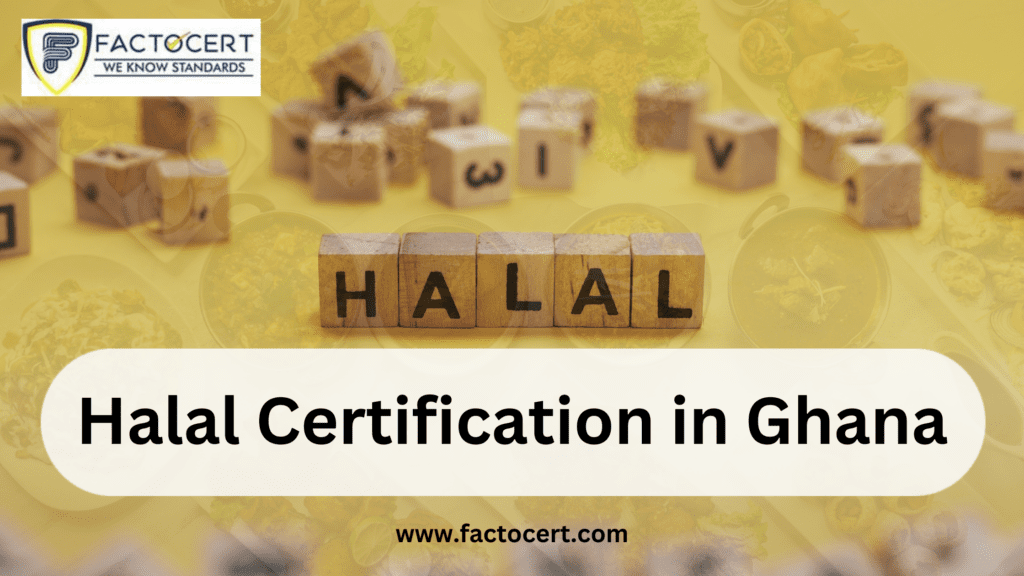Halal Certification Ghana’s diversified and tasty food reflects the country’s rich tapestry of culture. With a growing global awareness of dietary choices, Halal Certification has emerged as a powerful force, influencing the dynamics of Ghana’s food business. In this blog article, we will look at how Halal Certification has transformed the manufacture of milk and canned food goods, demonstrating how this careful procedure ensures not just adherence to Islamic dietary regulations but also improves overall product quality.
Understanding Halal Certification:
Halal Certification is more than just a label; it is a comprehensive process designed to suit the dietary needs of the Muslim community. This Certification covers more than just meat products, including milk and tinned food. It entails scrutinising every stage of production, from raw material procurement to final packaging, to ensure compliance with Islamic regulations.
Certifying Milk and canned Food Products:
In Ghana’s flourishing food industry, the Certification procedure has had a significant impact on products like milk and canned goods. Milk, a staple in many households, is rigorously tested to verify that it fits the stringent standards established in Islamic dietary laws. The Certification process considers not only the source of the milk but also the processing processes and hygiene of the manufacturing facilities.
For canned food goods, the Certification process is similar. The procurement of materials, the production process, and even the additives used are all rigorously evaluated to ensure their Halal status. This procedure not only meets the nutritional needs of the Muslim population, but it also improves the quality of these items, making them more appealing to a wider range of consumers.
Quality Enhancement with Halal Certification:
Halal Certification is more than just meeting religious standards; it also functions as a quality assurance method. The thorough examination used in the creation of Halal-certified foods provides a higher level of hygiene, sourcing, and processing. This devotion to excellence connects with customers, regardless of religious identity, and fosters trust in the products.
Ghana’s populace, with its diverse religious landscape, benefits from the higher quality requirements established by Halal Certification. Whether it’s a Muslim consumer looking for Halal items or a non-Muslim consumer looking for quality assurance, Halal Certification has an impact across the board.
Halal Certification in Ghana:
In recent years, the demand for Halal-certified items in Ghana has increased significantly. The expanding Muslim population has driven this trend, with buyers actively seeking products that reflect their religious values. In response to this demand, businesses in the food industry are increasingly adopting Halal Certification as a strategic step to increase market share.
Requirements for Islamic Law:
Halal Certification in Ghana ensures that food products adhere to the strict criteria of Islamic law. This includes not only the absence of forbidden components but also the implementation of ethical and sustainable practices across the supply chain. The Certification procedure serves as a bridge, linking manufacturers with consumers who value not just religious but also ethical concerns in their purchase decisions.
Applied to Meat Products and More:
While the focus has been on milk and canned food products, it is important to highlight that Halal Certification applies to a wide range of goods and services. From meat products to food additives, the Certification procedure covers a wide range of the food business. This openness guarantees that consumers have a diverse selection of Halal-certified options, resulting in a more inclusive and welcoming marketplace.
Enhancing the Features and Quality:
Halal Certification is more than just a checkbox for religious conformity; it represents a journey to improve the features and quality of food products. Businesses in Ghana’s food industry that adhere to Halal Certification principles not only suit the demands of a certain demographic but also establish a standard for excellence. This commitment to quality has the potential to establish Ghana as a hub for Halal-certified products, drawing both domestic and international consumers.
Why Choose Factocert Halal Certification in Ghana?
Are you seeking Halal Certification in Ghana? Factocert is a significant Halal Certification Bodies in Ghana, providing Halal Consultants in Ghana and with offices in Accra, Kumasi, Tema, Tamale, Cape Coast, and other important cities. We provide a variety of ISO Standards at discounted prices, including ISO 27001, ISO 9001, Halal, Halal,GMP, SA 8000 Halal, ISO 17025, ISO 14001, ISO 22000, and others. For further information, please visit www.factocert.com or contact us at contact@factocert.com
Conclusion:
Halal Certification has had a substantial and complex impact on Ghana’s food business. Beyond religious considerations, the Certification procedure improves product quality by verifying that it meets the strict standards established by Islamic dietary regulations. As the demand for Halal-certified foods in Ghana grows, businesses that embrace this Certification not only serve a certain audience but also contribute to a culture of quality and diversity across the food sector landscape.
For more information visit : Halal Certification in Ghana





